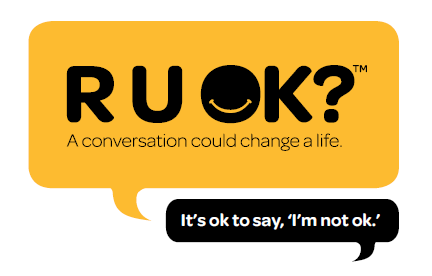How positive thinking can help you reach your weight loss and life goals –
It's all in the power of your mind. Yep, that's right. Research shows that those who are determined to succeed, more likely do.
It’s all in the power of your mind. Yep, that’s right. Research shows that those who are determined to succeed, more likely do.
The same applies when it comes to weight loss. You’ve got all the tools to succeed – the books, the shakes, meal plans, activewear – theoretically, you’re halfway there.
So why when you know what you need to do, do you struggle to do it and find you’re still not reaching your goals?
Whether it’s weight loss related or other goals, a positive mindset is key and is often the difference between success and failure.
If you find yourself stuck in a negative pattern of thinking, give these top tips a go. After all, you’ve got nothing to lose and your goals to gain.

How it works
Positive thinking is a powerful tool that can help you reach your weight loss and life goals. When you have a positive mindset, you’re more likely to believe in yourself, set realistic goals, and take action towards achieving them.
Here are some of the ways that positive thinking can help you lose weight and reach your life goals:
- It boosts motivation. When you have a positive outlook, you’re more likely to be motivated to take action towards your goals. This is because you believe that you can achieve them and that you’re worth the effort.
- It helps you overcome challenges. Everyone faces challenges on their weight loss journey. But with a positive mindset, you’re more likely to see setbacks as temporary and to learn from them. This will help you stay on track and keep moving forward.
- It improves your overall health and well-being. Positive thinking has been shown to reduce stress, improve sleep quality, and boost the immune system. All of these things can help you lose weight and reach your life goals.

Top tips to having a more positive outlook on life
1. Acknowledge your negative thoughts
Trying to ignore your negative thoughts actually has the opposite effect, they keep popping up and eventually start affecting the way you behave.
By acknowledging your negative thoughts, you can objectively rationalise reality from the story you tell yourself.
So instead of “I haven’t got the time to work out this morning, I’m never going to lose weight” try “I haven’t got the time to work out this morning but I can walk to work/school/the supermarket which will count as exercise for today”.

2. Positive people are more successful
Surround yourself with positive people and eventually, you’ll start to feel encouraged, positive and persevere in reaching your goals.
You will definitely experience doubt, failure and uncertainty but when you surround yourself with positive support, you build resilience so you can get back on track when you fall.
The Healthy Mummy Facebook groups are excellent for being in a supportive community and a great way to start to reach out to other mums on their weight loss journey.
3. Be realistic about failure and success
Quite often we set unrealistic goals and when we fail, we dwell on it.
Studies have shown that by imagining failure and recovery, instead of the end goal, made people more likely to succeed in reaching their goals.
This has been attributed to the building of resilience and also being realistic about the fact that failure is a part of life. Once we accept it and move on, instead of dwelling on it, a positive mindset is easier to maintain.
Plus, no matter how small they may seem, celebrate your successes along the way. This will help you stay positive and motivated

4. Know your triggers
A lot of negative thinking stems from deep-seated issues, perhaps it’s a learnt behaviour from childhood or self-esteem issues.
Once you start being more self-aware and begin identifying your triggers and when they are happening, the negative thought will be easier to get rid of.
A good way to track your triggers is by writing down thoughts or circumstances before, during and after the negative patterns. Do this for a couple of weeks and then review them. You may uncover unhealthy habits or patterns that were not previously obvious to you.
Remember to be kind and compassionate to yourself, even when you make mistakes. Remember that everyone slips up from time to time. The important thing is to learn from your mistakes and keep moving forward.
5. Find a positive morning routine and stick to it
There are some things in life you can’t change; nocturnal babies, work/life balance or busy schedules.
So creating an intentional positive mindset every morning will help you regain some focus.
You may not have control over others but you are in control of yourself and your attitude. Set your alarm ten minutes early to meditate, go for a brisk walk or to make a list of what you need to accomplish that day.
It will set you up positively for the day ahead. If you find yourself deviating from your positive mindset then practice shifting negative thoughts to more positive ones.
Unfortunately, this takes practice but once mastered, you will be able to develop a strong positive morning routine.
Start your day with one of our yummy Healthy Mummy Smoothies.
Skip the guilty shakes. This is a better way to Smoothie
If you need extra help, seek assistance from a health professional
If you’re finding it difficult to shift your negative thinking to a positive one or if your negative thoughts are starting to disrupt your life drastically, it maybe time to seek help from you GP.
Getting the support you need
One in seven women in Australia suffers from postnatal depression and one in ten new fathers also experience postnatal depression, says Perinatal Anxiety & Depression Australia (PANDA).
If you or someone you know is struggling, then remember you are not alone. Have a look at our story on what every mum who has experienced PND needs to hear as well as our postnatal depression archives for ways to get the help you deserve.











